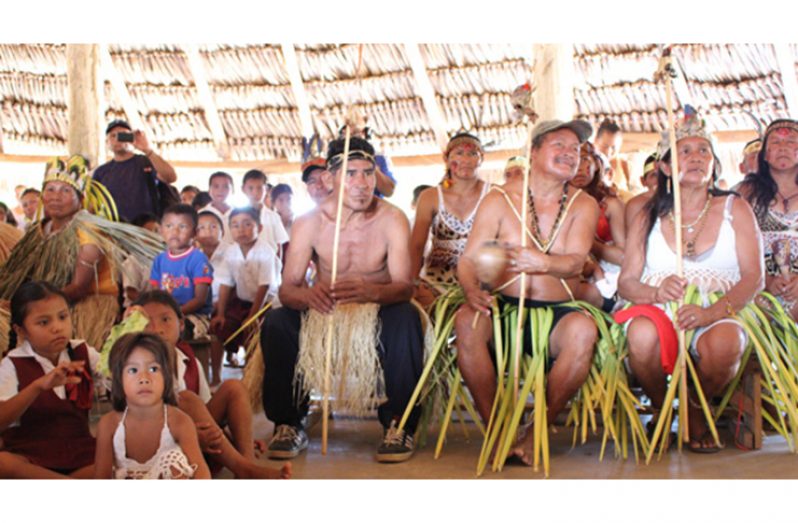COME September, 2018, Wapichan children in three nursery schools in Region Nine will be taught in their native language, creating history in Guyana.
Via a Memorandum of Understanding with the Quality Bilingual Education Programme for Wapichan Children (QBEP), the Education Ministry has agreed to introduce the language course at three pilot schools in Region 9 – Maruranau, Sawariwau and Karaudarnau Nursery Schools.
The project had been a work in progress for approximately two years. According to the MoU, which was signed on Friday, QBEP, in collaboration with the Education Ministry through NCERD, completed the production of material for the year of nursery education that reflects both national standards for Guyana and the language and culture of the Wapichan people.
The bilingual programme will run from the start of the academic year in September, 2018, to the close of the academic year in 2020.
“With the permission of the Ministry of Education, the Nursery Year One material will be used from the start of the academic year in September, 2018, to the close of the academic year in 2019. It will be used by teachers for Nursery One in three pilot schools in Region 9: Maruranau, Sawariwau and Karaudarnau Nursery Schools.
“A further three schools have been selected to act as control schools in ongoing monitoring and evaluation of the programme. These schools will be: Shea, Awarewaunau and Katoonarib Nursery Schools,” Clause 2 of the MoU explained.
It was noted that while the year one nursery school Wapichan children are being taught, QBEP and NCERD will work to produce materials for Nursery Year Two to be used in the same pilot schools from September, 2019, to the close of the academic year.
During this pilot phase, it was agreed that teachers in the selected schools will adhere to the guidelines established by QBEP, and keep records associated with its delivery and assessment. Additionally, with permission from the Chief Education Officer (CEO) Marcel Hutson, the teachers are expected to attend QBEP Resource Development workshops.
According to the MoU, a comprehensive evaluation of the pilot project will be done to determine whether or not to continue the nursery programme into the first three years of primary education. The MoU was signed by the CEO and QBEP Administrative Coordinator, Silverius Perry, on Friday.
The Ministry of Indigenous People’s Affairs and the Toshaos of Deep South Rupununi are also behind the initiative.
Last month, at the conclusion of a rigorous orientation programme aimed at determining innovative approaches to the teaching of language, mathematics and science, Minister of Indigenous People’s Affairs, Sydney Allicock, said language is key as he alluded to the pilot project.
“Language is very important, especially for Guyana and the unity that is the unifying of our people, our country and our region. We have the dedication of the people and the opportunity to move us forward into that next era, one that can change the mindset of the Guyanese people and put a new dimension on how we look at Guyana.”
Weighing in on this new development, Vincent Alexander – technical facilitator to the Education Ministry – said: “What language does is give you identity and recognition and when you have identity and recognition, then there’s currency to deal with the others, so what this should be doing for you is not only helping in terms of helping to assimilate, but also to give you the kind of scope to outreach beyond your region, your country and into the wider global community, because there are things that you can give to the globe and there are things that the globe can give to you.”
Extensive grassroot level interactions were carried out to ensure ownership of the proposed programme among the communities ahead of this implementation.




.png)









